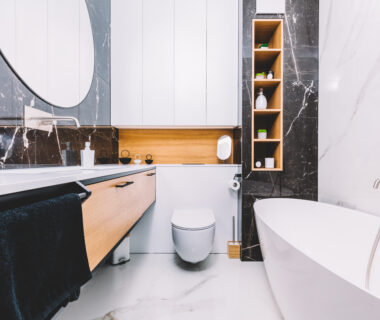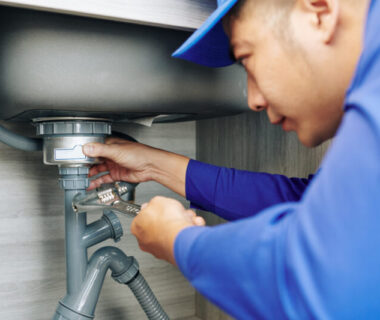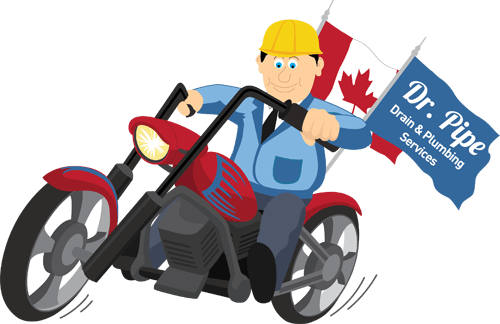Condo Plumbing Renovations in Toronto
Condo Plumbing Renovation by Dr. Pipe Drain and Plumbing
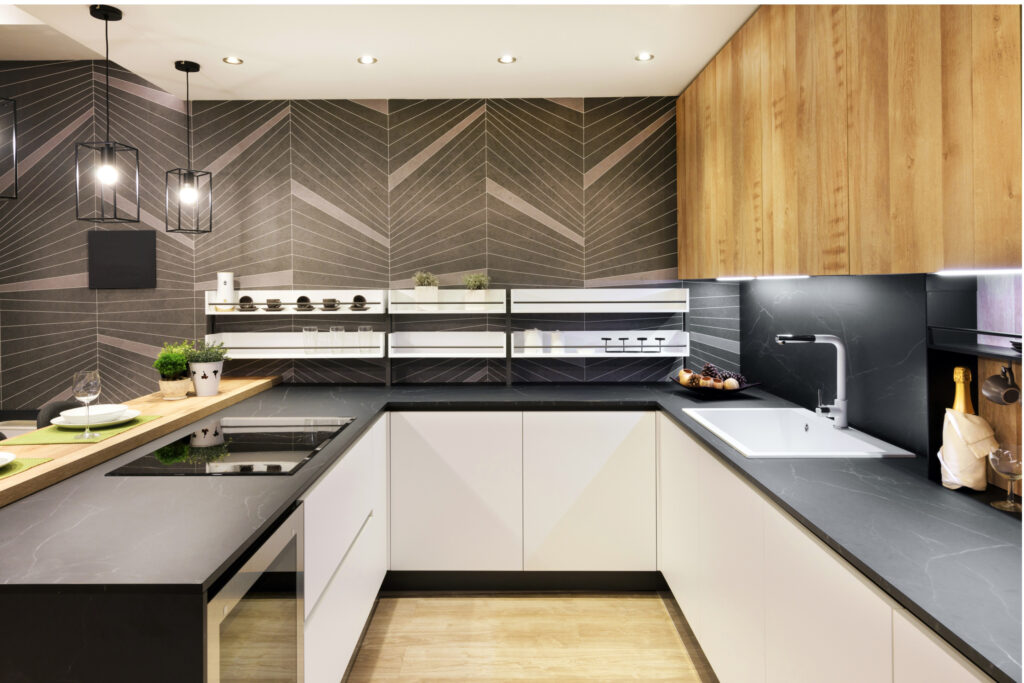
Are you interested in upgrading your condo plumbing in Toronto? Our skilled team of professional plumbers is here for you. Whether the goal is to get a quick refresh or go all out for a complete remodeling, we have the skills to transform your vision into reality. We’ll listen to what you want, respect your budget, and stick to the agreed-upon timeline. Contact us today to see how our team can meet or exceed your expectations!
Why Select Dr. Pipe for Condo Plumbing?
- Expertise in Condo Regulations: We have experience dealing with the complexities of condo board approvals and building regulations. At Dr. Pipe, we ensure all remodeling work fits within the framework of your condo’s guidelines.
- Skilled Licensed Plumbers: We employ licensed and certified professionals who have experience and expertise in tackling condo plumbing systems.
Clear Pricing: We provide transparent, fully itemized estimates, eliminating surprises and ensuring your project remains within budget.
Timely Project Completion: Our professional plumbers commit to wrapping up projects promptly without jeopardizing quality.
Navigating Condo Renovation Rules in Toronto
Renovating a condo involves more than choosing finishes and hiring a contractor. With shared infrastructure and strict building regulations, it’s important to understand what’s required before starting any plumbing or remodeling project. You can rely on us at Dr. Pipe Drain and Plumbing to manage everything, ranging from approvals to final inspections, with the highest degree of professionalism.
Understanding the Approval Process
Even relatively inconsequential plumbing upgrades might require written approval from your condo board. The reason is that such work could impact shared systems or neighboring units. We help you prepare compliant renovation plans to fast-track the approval process and lessen the chance of delays.
Reviewing Condo Renovation Regulations
Each condo corporation has its own bylaws outlining what’s permitted and what’s prohibited. These guidelines often specify the following:
- Which kinds of renovations require prior approval
- Approved materials and plumbing fixtures
- Limitations on work in common areas or shared walls
- Time limits and approved work hours
We review these regulations with you to ensure your remodeling follows all building requirements.
Permit Requirements
In most condo projects, building permits may be unnecessary for interior cosmetic changes. Plumbing or structural changes, however, typically require permits from the city. As a licensed condo plumber in Toronto, we take care of all permit applications so your project is 100% code-compliant.
Inspection Protocols
Your condo management will likely require a pre- and post-renovation inspection. Such inspections ensure there’s no structural damage, leaks, or code irregularities during the condo renovation. Our team works closely with condo managers and inspectors to meet all inspection criteria and secure approvals at every phase of the project.
Plumbing and Electrical Restrictions
Condo boards may ban electrical wiring or plumbing layout changes that impact shared infrastructure. When it comes to condo plumbing renovation in Toronto, we factor those constraints into the equation. The goal is to offer creative plumbing solutions that meet your objectives and comply with condo bylaws.
Damage Deposits
Many condo boards require damage deposits before renovations start. The refundable deposit covers possible damage to common areas, such as elevators, hallways, or lobbies. We take measures to safeguard all shared areas and respect your building’s guidelines to ensure complete compliance.
Managing Waste, Noise, and Work Hours
Most condos strictly regulate when and how renovations are conducted. You can expect rules pertaining to the following:
- Sound levels — work is usually limited to Monday to Friday between 9 AM and 5 PM
- Elevator use — delivery and transport of materials may necessitate pre-scheduled bookings
- Waste disposal — debris must be removed promptly and efficiently
We coordinate all logistics ahead of time to safeguard against disruptions and maintain a professional work environment throughout your condo.
Access and Parking for Contractors
Condo multi-unit plumbing projects can be challenging because of limited parking and strict delivery rules. Contractors often need to reserve loading areas or parking spots before the projects get underway. Our team does the legwork to obtain parking permits and access to the work areas, so there’s minimal disruption.
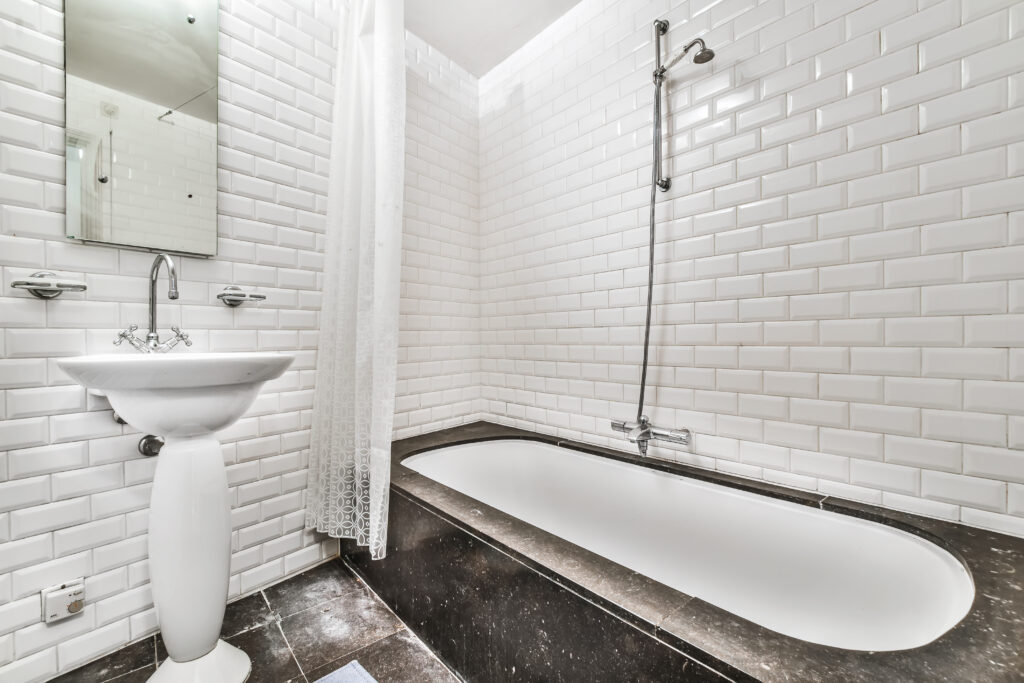
How It Works: Dr. Pipe Drain and Plumbing’s Condo Plumbing Renovation in Toronto
When considering condo plumbing installation, repairs, or renovations, you want a seamless, straightforward, and stress-free process. Whether you’re upgrading a bathroom, remodeling a kitchen, replacing fixtures, or getting extensive high-rise plumbing work, our process is designed to deliver results.
Get a Cost-Free Estimate
After disclosing the particulars about your plumbing needs, our licensed plumbing professionals will provide an accurate, detailed estimate. You’ll know upfront the scope of the project and how much everything will cost..
Let Our Experts Handle It
Rather than looking for “condo bathroom renovation near me” online, call us at Dr. Pipe. Our licensed plumbers specialize in condo plumbing systems and condo renovations in Toronto. From simple repairs and fixture replacements to comprehensive renovations and rough-ins, you can count on us. We’ll respect your budget, condo regulations, and project timelines.
Condo Plumbing Renovation in Toronto: Tips and Considerations
Condo bathroom renovations in Toronto add long-term value, boost functionality, and modernize your living space. Whether you’re updating one room or the entire condo or apartment unit, keep the following things in mind:
Cost of Condo Plumbing Renovations in Toronto
Are you thinking about condo renovation costs in Toronto? The expense can vary considerably depending on factors like the scope, scale, and complexity of the project. It’s essential to understand the main cost drivers and typical price ranges.
Key Factors That Affect Pricing for Condo Plumbing Renovations:
- Scope of Work: Are you updating a single fixture or redoing the entire plumbing layout?
- Unit Accessibility: Limited elevator access, working hours, or condo board regulations can negatively impact labor.
- Material Quality: High-end fixtures and finishes boost material and installation expenses.
- Permits and Compliance: Some buildings require special approvals or added insurance, which can increase costs.
- Existing Condition of Plumbing: Older units might need pipe replacements, code upgrades, or rerouting.
Estimated Cost Ranges for Condo Bathroom Renovations in Toronto:
- Minor fixture updates (e.g., toilet, showerhead, or faucet): $600 to $3,000
- Kitchen or bathroom plumbing remodeling: $8,000 to $25,000
- Full-unit re-piping or system upgrades: $15,000 to $32,000
If you’re unsure what your project might cost, don’t worry. Instead of searching for “condo plumbing renovation near me” online, reach out to our team at Dr. Pipe Drain and Plumbing. We’ll guide you through every step of the process so you stay on budget and get the results you want.
Are You Ready to Upgrade Your Condo Plumbing?
Whether you’re replacing outdated kitchen or bathroom fixtures, modernizing your pipes, or relocating bathroom or kitchen plumbing, Dr. Pipe Drain and Plumbing is your trusted Toronto and Greater Toronto Area partner. Look no further for condo bathroom renovations in Toronto or any other plumbing-related projects. You can count on us for professional guidance, licensed experts, and a clean, efficient, and effective process.
Call us today at +1(416) 663-4777 or reach out to us online to schedule your condo plumbing renovation estimate!
In most cases, the parking area reserved for contractors is near the building’s entrance for ease of transporting the construction materials. A parking space reservation might also include an elevator reservation to prevent your workers from colliding with other condominium owners.
Let Dr. Pipe Drain and Plumbing Solve Your Plumbing Problems
Dr. Pipe is fully insured and licensed. With many years of experience serving our clients in Ontario, we’ve built a clean reputation. Our workers are also both certified and experienced. Therefore, you can trust us to do it right the first time.
